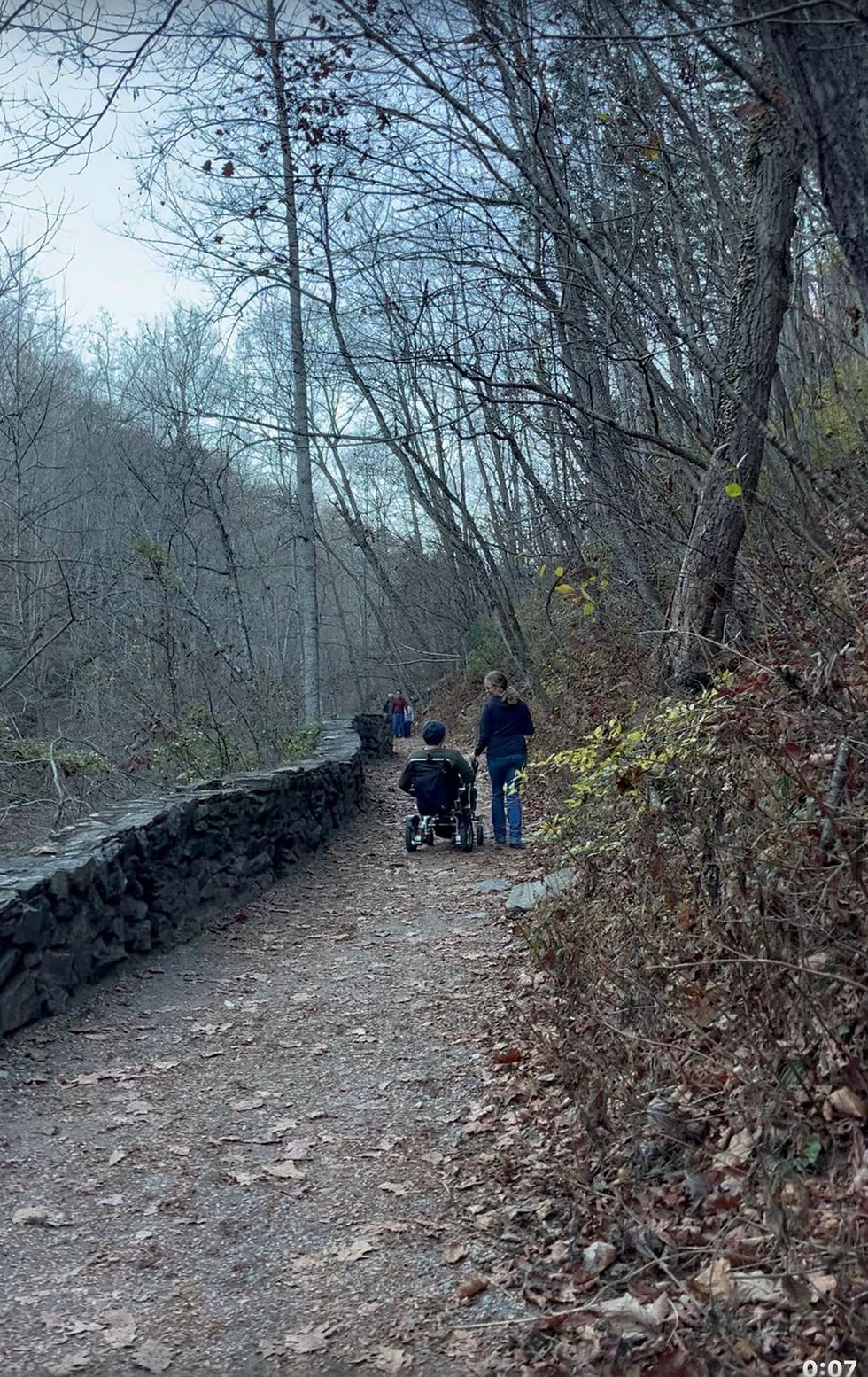When Disability Is Seen as a Problem to Fix: Prayer, Presence, and Acceptance
- Michele Russell

- Sep 20, 2025
- 3 min read

When Disability Is Framed as a Problem to Fix
After church one Sunday, a woman approached Jonny and me. She looked at him and asked if she could pray for him. Jonny said yes. He asked that she pray God would continue to do a good work in him. Instead, she prayed for his brain injury to be healed. Her words were emotional, well intentioned, and full of hope, but they left me unsettled.
This is where it becomes complicated. Of course, I desire healing for Jonny. I pray for that too. Yet at the same time, we are learning the hard work of acceptance, of living fully in the life we have now. We believe in prayer and miracles, but also in God’s sovereignty and the truth that healing is not withheld because of a lack of prayer. Still, prayers so focused on fixing the physical can send another message entirely: that Jonny is somehow incomplete until healed, and that who he is right now is not enough.
Desire vs. Need
Jonny deeply desires physical healing. I do too. But when we look more closely, so much of that longing is not only for physical wholeness. It is for belonging, community, support, purpose, and relationship. Those are human needs, the very ones we all share. They do not disappear with disability, and they can be met even without physical change.
Yet too often, prayers, programs, and even media overlook these deeper needs. They put nearly all the focus on physical ability. When people pray for Jonny’s healing without seeing him as he is, the message underneath can be one of non-acceptance. Even if unintentional, it suggests that the life he is living now cannot be purposeful or whole. And that is simply not true.
The Cost of an Unbalanced Focus
What I have noticed is a real imbalance. So much attention goes toward the physical disability, while emotional well-being, mental health, belonging, and purpose are overlooked. Our culture is fixated on the physical, sometimes at the cost of the very things that make us human and whole.
We are so uncomfortable with difference, so uneasy with our own discomfort, that we project it onto the person with the disability. That projection then turns into a drive to fix, rather than an invitation to be present, to understand, or to share life together as it is.
Acceptance as Struggle and Value
For Jonny, acceptance is both a struggle and a deeply held value. He longs to be received as he is, but that acceptance is made harder when others, even with good intentions, reinforce the idea that only physical healing can unlock belonging, purpose, and a full life. For me too, it can be exhausting to stand in a culture where disability is reduced to what is “wrong” rather than who a person is.
Shifting the Question
So what if the question shifted? What if, instead of focusing on fixing, people prayed for Jonny to experience joy, friendship, fulfillment, and opportunities to contribute his gifts? What if the focus was not on what is absent, but on what is possible?
People with disabilities are not problems to solve. They are lives to witness, encourage, and support.
A Different Kind of Wholeness
Healing prayer and medical treatments have their place, but they cannot be the only lens. Sometimes, what strengthens us most is the affirmation of what already exists. Holding both hope for change and acceptance of life as it is allows for a kind of wholeness that is deeper than physical ability alone.
Jonny and I do not need every prayer to be about fixing what is seen on the surface. Sometimes, what strengthens us most is the prayer that God would use our lives for his glory, that Jonny would find fulfillment and purpose, and that we would have the courage to keep showing up in a world that often misunderstands disability. That is not a smaller prayer. It may be the greater one.
Jonny and I are not alone in this experience, and this is a reality many people with disabilities face every day. How often do we focus on what needs to be “fixed” rather than seeing who someone truly is? We invite you to reflect with us, to notice the ways presence, encouragement, and inclusion can make a difference, and to consider how each of us can support lives as they are now while still holding space for hope.




Comments